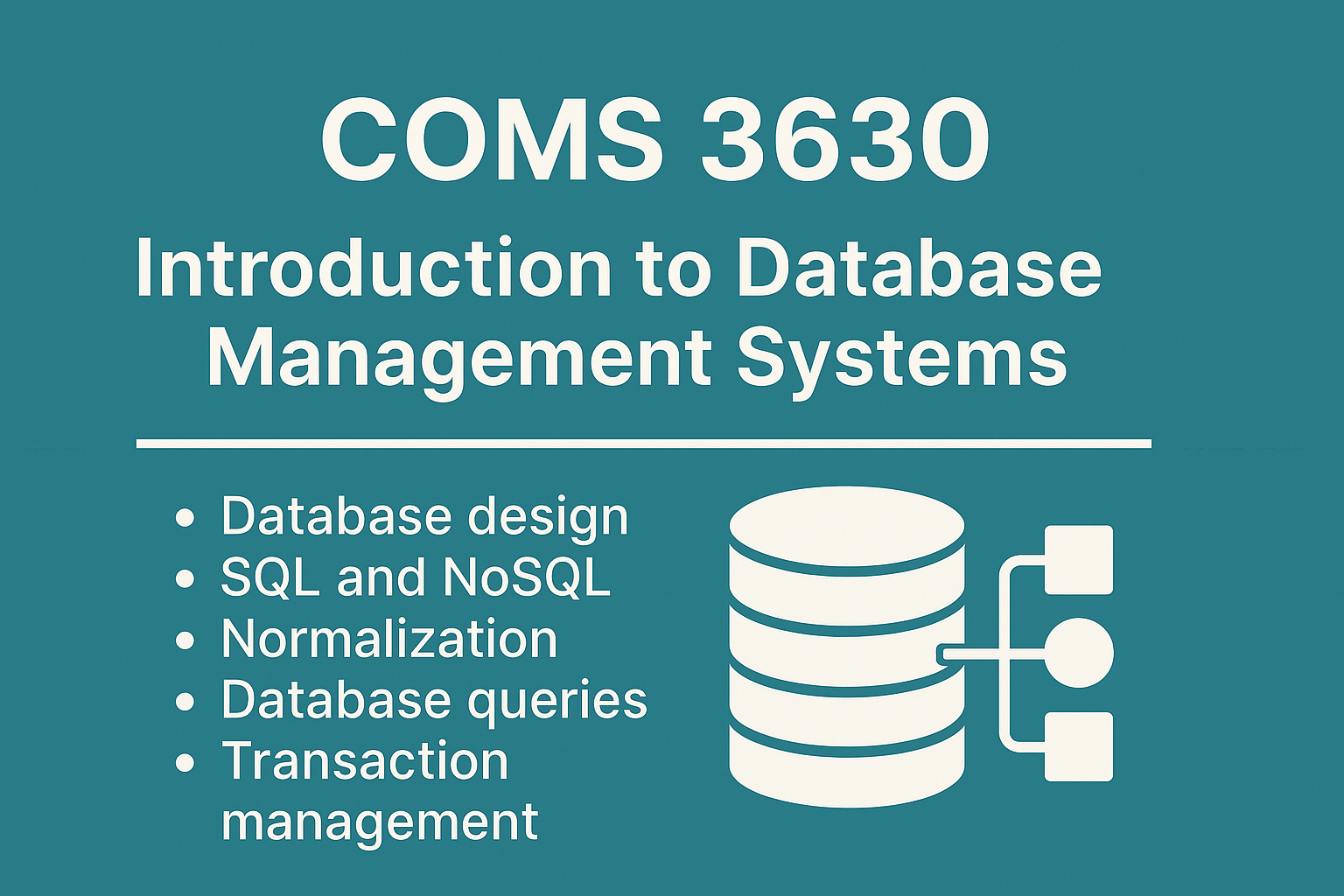COMS 3630: Introduction to Database Management Systems
Course
Computer Science
Database
A foundational course on the design, implementation, and optimization of modern database systems.
Database Management Systems
Course Description
COMS 3630 offers a comprehensive introduction to database systems, covering both theoretical foundations and practical implementation. Students explore various data models (relational, object-oriented, and semistructured), learn query languages such as SQL and NoSQL, and build full-stack applications that integrate modern database backends with web interfaces.
The course emphasizes database design, optimization, and application development, using tools like MySQL, MongoDB, and Neo4J.
Figure: Conceptual overview of database management systems and their core components.
Topics Covered
- Entity-Relationship (ER) Modeling
- Relational Model & Relational Algebra
- SQL Programming and Constraints
- NoSQL Systems (MongoDB, Neo4J)
- Schema Normalization & Data Dependencies
- Database Storage & Indexing
- Cost Estimation & Query Optimization
- Transaction Management & Concurrency Control
- Web Application Integration using SQL APIs & ORMs
- Application Development using Host Languages (e.g., Python, Java)
My Role
Computer Science Graduate Teaching Assistant (Spring 2023)
As a Teaching Assistant for COMS 3630, I supported over 100 students in understanding key database concepts and building end-to-end data-driven applications. My responsibilities included:
- Lab Instruction & Demonstrations: Led weekly sessions on topics like SQL programming, ER modeling, and NoSQL databases (MongoDB, Neo4J).
- Project Mentorship: Guided students through semester-long projects, helping them design schemas, write efficient queries, and integrate databases with web applications.
- Technical Support: Assisted students in implementing transactions, managing storage, and debugging issues related to query execution and performance.
- Design Review & Grading: Evaluated assignments and database design submissions, providing constructive feedback aligned with best practices.
- Office Hours: Offered one-on-one and group-based academic support on database internals, relational algebra, and query optimization strategies.
Learning Outcomes
By the end of the course, students are expected to:
- Design and implement relational databases using ER modeling and normalization techniques.
- Develop database-driven applications using SQL, APIs, and ORM frameworks.
- Work with NoSQL systems including document-based (MongoDB) and graph-based (Neo4J) databases.
- Understand internal DBMS operations, including query processing, transaction management, and storage optimization.